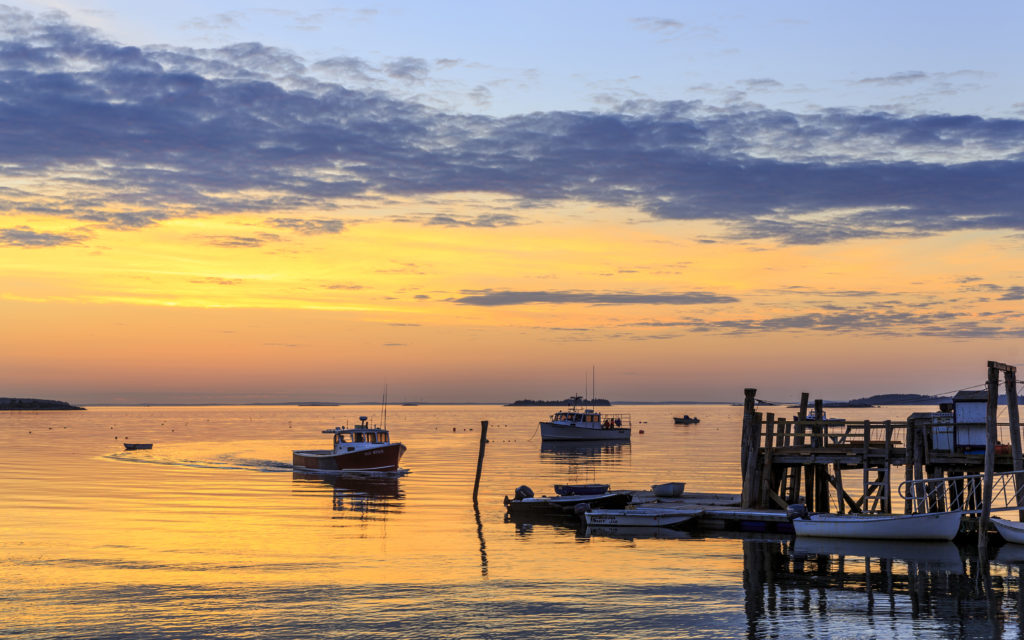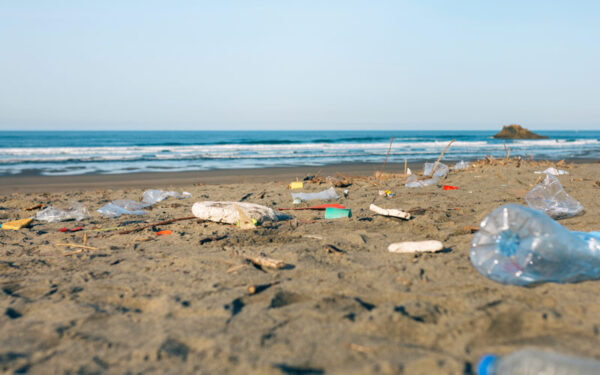
This Congressional session, we're focused on protecting special places in New England’s ocean, addressing threats to the critically endangered North Atlantic right whale, and promoting sustainable fisheries. Photo: EcoPhotography
The ocean plays an integral role in New Englanders’ lives, our economy, and our communities. As the 116th Congress begins to shape its agenda, CLF’s Oceans team is working to advance legislation that protects our ocean.
The 2018 midterms brought a Democratic majority to the House, giving us new and exciting opportunities for environmental legislation. This Congressional session, we are focused on protecting special places in New England’s ocean, effectively addressing threats facing the critically endangered North Atlantic right whale, and promoting sustainable fisheries.
CLF has stood up for New England’s ocean for decades, and today we continue to fight for a clean, healthy, and productive ocean for generations of New Englanders to come.
Safeguard New England’s Marine National Monument and the Antiquities Act
The Northeast Canyons and Seamounts Marine National Monument is the first and only marine national monument in the U.S. Atlantic Ocean. Just 130 miles off the coast of Cape Cod, it’s a biodiversity hotspot protected from industrial activities like commercial fishing and offshore drilling. Called the “Serengeti of the Sea,” it’s home to a remarkable array of marine life from endangered whales to sea turtles, seabirds to rare deep-sea corals.
Climate change and ocean acidification already threaten our ocean, making protected places like the Canyons and Seamount critical to ensuring its long-term health. Yet the Trump administration wants to weaken protections for public lands and waters across the country, including New England’s only marine monument.
The Northeast Canyons and Seamounts were established using the Antiquities Act, enacted in 1906 and today one of the country’s most important conservation tools.
Today, we’re working with members of Congress to push back on the administration’s threats by supporting the America’s Natural Treasures of Immeasurable Quality Unite, Inspire, and Together Improve the Economies of States (ANTIQUITIES) Act of 2019. This year’s legislation reinforces the current law, ensuring that presidents can’t rescind or diminish existing national monuments. It also codifies the status of 52 national monuments established or expanded under the Antiquities Act since January 1996 – including the Northeast Canyons and Seamounts Marine National Monuments (and beloved land monuments, such as Grand Staircase-Escalante and Giant Sequoia).
Protect the Few Remaining North Atlantic Right Whales on Earth
North Atlantic right whales could face extinction if we don’t act quickly. Once a common target for whalers, the population rebounded in recent decades only to now face new and increasing threats.
Nearly all right whale deaths are caused by human activities, namely entanglement in commercial fishing gear and ship strikes. In the past two years, we know of 20 right whales that have died – but even that number underestimates the actual number of deaths. With less than 420 whales remaining, every death threatens the species’ existence.
The Scientific Assistance for Very Endangered (SAVE) Right Whales Act will fund collaborative projects between states, non-governmental organizations, and members of the fishing and shipping industries. This funding will help develop, test, and implement ropeless gear, a new technology that would reduce the number dangerous vertical lines that entangle whales.
We’re supporting the SAVE Right Whales Act, but it’s only one step toward saving these critically endangered whales. We’d like to see action from the federal government beyond funding ropeless gear projects. Expanding seasonal fishing ground closures to protect groups of feeding or calving right whales and mandatory speed restrictions to prevent deadly ship strikes are just a couple of examples of other ways the government can take action now to protect this imperiled whale.
Promote Sustainable Fisheries
Today, the United States has some of the most sustainable fisheries in the world thanks to our nation’s federal fisheries management law: the Magnuson-Stevens Fishery Conservation and Management Act. But here in New England, too many of our fisheries are still struggling to recover from decades of overfishing because the law has been poorly implemented by our regional fishery managers.
We don’t have to look any further for proof than Atlantic cod, New England’s iconic fish. After being overfished for decades, cod is now close to collapse. With a strong federal law that protects spawning grounds and takes the full ecosystem into account when making management decisions, we could be on the path to a healthier cod population.
The Magnuson-Stevens Act is due for reauthorization, meaning that Congress has the opportunity to revisit the successes of our nation’s fisheries and consider improving the law where it doesn’t live up to its potential. We need a strong Magnuson-Stevens Act to ensure that vulnerable stocks such as cod — and the fishing communities that depend on them — can rebuild to sustainable levels for future generations.
CLF will support legislation introduced by the 116th Congress that prioritizes fisheries management based on sound science and will promote the long-term health of New England’s fisheries.
Together, We Can Protect New England’s Oceans
A healthy ocean means a healthy New England, and CLF’s ocean advocates will be working with members of congress pushing forward critical bills that protect our ocean. Your voice will be critical as our work on these issues continues, and we’ll be calling on you to reach out to your representatives in Congress to stand up for our ocean.




